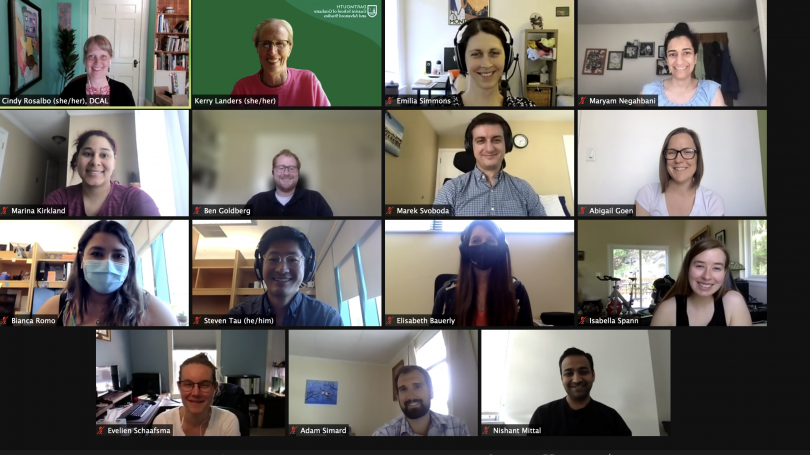In May, graduate students and postdocs participated in a mentor training workshop series hosted virtually by Kerry Landers, assistant dean of student affairs at the Guarini School, and Cindy Rosalbo, associate director at the Dartmouth Center for the Advancement of Learning (DCAL). The series, which ran over four sessions, was a follow-up to the Center for Improving Mentoring Experiences in Research (CIMER) Mentoring Program workshop which Landers and Rosalbo attended in the fall of 2020.
Dartmouth's affiliation with CIMER Program is an initiative spearheaded by Guarini Graduate Student Council president Curtis Petersen and vice-president Eva Childers, Dean Jon Kull, in collaboration with the Dartmouth C3I, who participated in an in-person training in Madison, Wisconsin in the Fall of 2019 along with faculty and staff from across campus. Following on from the in-person program in Wisconsin, Kull collaborated with CIMER to offer a six-session online facilitator training workshop to increase capacity for research mentor training programs on campus at Dartmouth.
The range of topics was extensive and allowed participants to delve into an array of tools to strengthen mentor-mentee relationships. Rosalbo and Landers who participated in the Fall 2020 workshops, agreed that the design of the program was flexible and responsive, and inspired them to develop tailored programming for graduate students and postdocs on campus.
"With this program," Landers says, "the aim was to present information, tools, and strategies that participants would be able to mold to their own experiences. Each mentor-mentee relationship is different, and flexibility is key in order to be an effective mentor."
Over the course of the four sessions, participants discussed different approaches to mentoring and examined various case studies to understand what strategies would be most effective and impactful for their own approaches to mentoring. By the end of the series, participants left with a mentoring "bag of tricks" from which to draw upon to facilitate the development of their own style of mentoring.
"Even though we were meeting on Zoom, we still started with introductions and creating group guidelines together. We were able to do small group work in Zoom breakout rooms," Rosalbo explained. "While Kerry and I couldn't "listen in" like we would if we were all in one room, the groups took collaborative notes that we could see as they typed - the advantage is that now we all continue to have access to those notes. The chat in Zoom also allowed people to make comments to each other and the group that might not have been said out loud. While I look forward to being together in the same room for workshops, I've also heard some express interest in continuing to have remote options and I think we may continue to use some of the online collaborative tools to have records beyond the events," she adds.
Participants in the four-week program responded that they found the series highly effective, and polled responses indicated they would recommend the training to their peers and would be interested in taking advanced mentor training workshops. Plans are being developed to offer the training to faculty.
Edited to note the intiative was a collaboration with the GSC, Dean Kull, and C3I.
